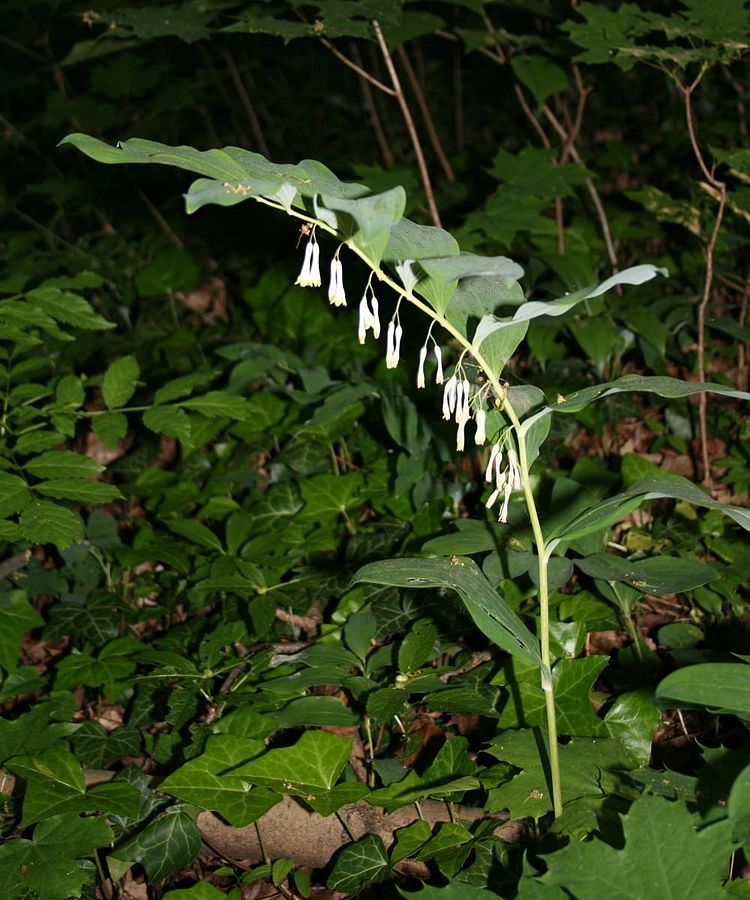
Also known as David’s harp, and ladder-to-heaven, this rhizomatous herbaceous perennial is native to Europe and temperate Asia. It is in the asparagus family, Asparagaceae, that also includes yucca, hosta, and spider plant. Solomon’s seal grows 2-3′ tall and has arching stems with alternate leaves that are oval to lance-shaped and mid-green from spring to summer before turning yellow in the fall. In spring, clusters of 2-6 white tubular flowers appear hanging from the leaf axils. The flowers are fragrant, tipped with green, and give way to blue-black berries. The plants colonize and are a good choice for shade and woodland gardens. The genus name, Polygonatum, comes from the ancient Greek words πολύς (polýs) meaning many, and γόνυ (gony) meaning knee, referring to the multiple jointed rhizome. The specific epithet, multiflorum, comes from the Latin words multus meaning many, and flos meaning flower, referring to the abundance of flowers in an inflorescence.
Type: Herbaceous perennial
Bloom: Clusters of tubular, pendant, white, fragrant flowers tipped with green in the spring
Size: 2-3′ H x 10-12″ W
Light: Part to full shade; dappled shade best
Soil: Fertile, consistently moist, well-drained
Hardiness: Zones 4-8
Care: Low maintenance
Pests and Diseases: Slugs, Solomon’s seal sawfly larva
Propagation: Division in the fall
Companion Plants: Astilbes, ferns, hostas
Outstanding Selections: NA
Photo Credit: Franz Xaver Wikimedia Commons